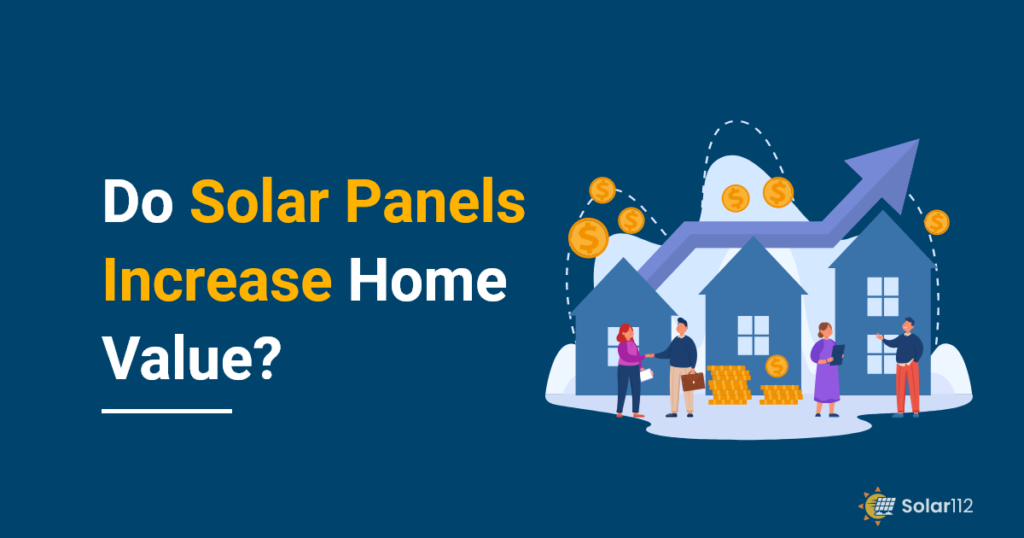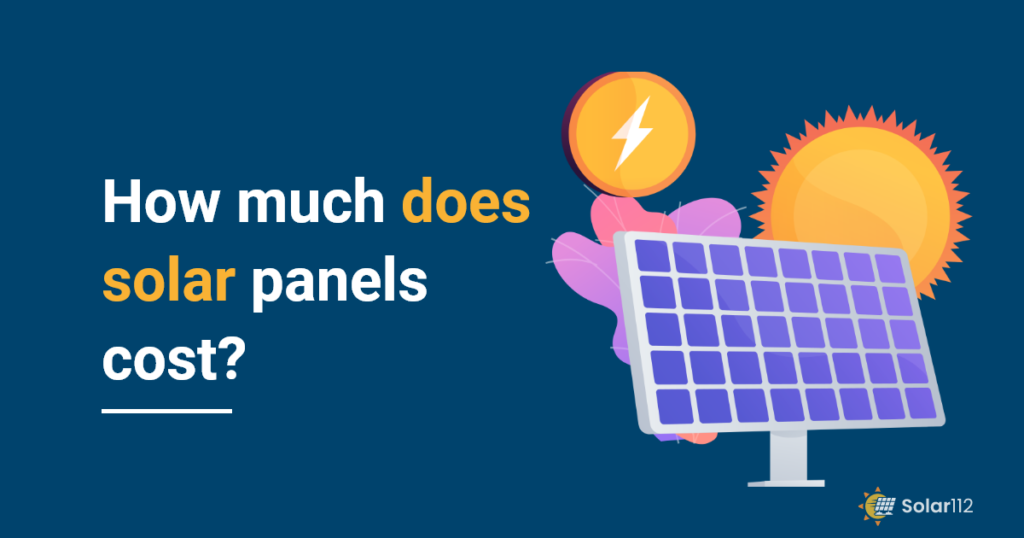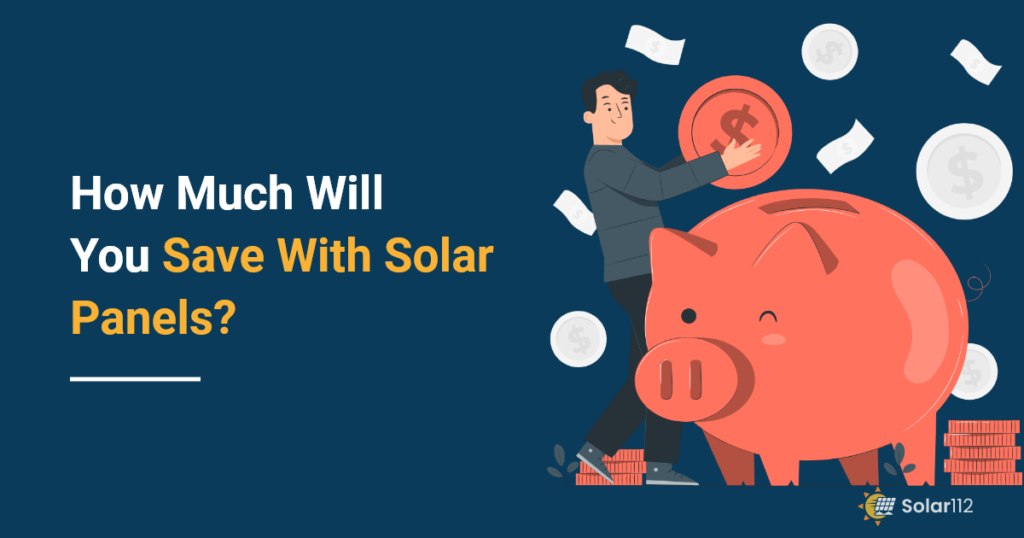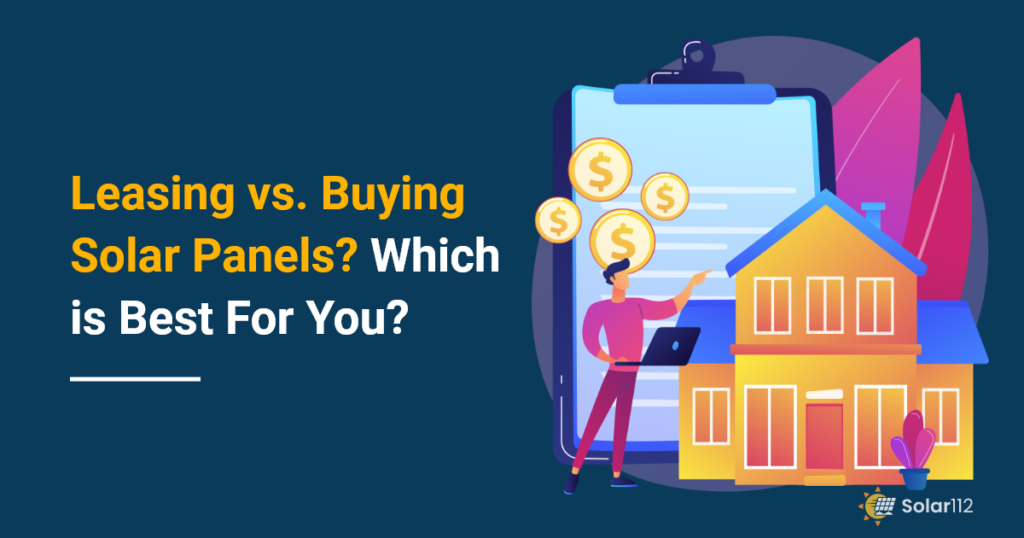Do solar panels increase home value? This is the question that most homeowners often juggle around. However, in this comprehensive guide, we will clear up all the doubts that are running through the solar market. Let’s dig into it.
Solar panels have been a great helping hand in maintaining a sustainable ecosystem by reducing the carbon footprint, as well as a great way to save your hard-earned money by cutting down on electricity bills.
As per the survey of the National Renewable Energy Laboratory, for every $1 reduction in the yearly utility bill, the home value increases by $20.For example, if your solar panels save $500 every year, then your home’s market value would increase by $1000. Now imagine the exponential value of your home if a solar system could save you more than that on your electricity bill.
Surely, installing solar panels on residential properties demands a one-time investment, but if you look at the bigger picture, all this money is worth investing in.
Still didn’t get it?
Okay, let us give you a scenario.
Considering you are living in a house with installed solar panels, you are saving on your utility bills and also fulfilling your responsibilities towards the environment. But what will happen when this house is sold? Will it affect the selling price of your home?
According to realtors or builders, there is a difference between adding value to your home and spending money on it. And with their expertise and our knowledge, we can undeniably say that a solar panel is a great value addition to your home.
How?
Well, for that, we have curated this comprehensive guide in which we will cover all the pointers of:
- how solar panels adds value to your home,
- the factors influencing solar’s added value,
- how solar panels impact your property tax,
- and finally, how can you maximize your solar panel investment?
So sit tight and grab a cup of coffee, because it’s going to take a while.
Key Insights
- Homes that are equipped with solar panels are 4.1% more likely to be sold than those that are not.
- With every $1 saved on power bills, Americans can get their $20 raised on the selling value of their homes.
- Location, federal incentive programs, local electricity rates, and size and condition of the PV system are the most influential factors behind solar’s added value.
- Know the local tax laws in your area to get the maximum exemptions on solar panels.
- Maximize your solar panel investment with tax credits, net metering, and rebates.
- Better to outright the solar systems than take them on a lease so as to avoid future conflicts.
How do solar panels increase home value?
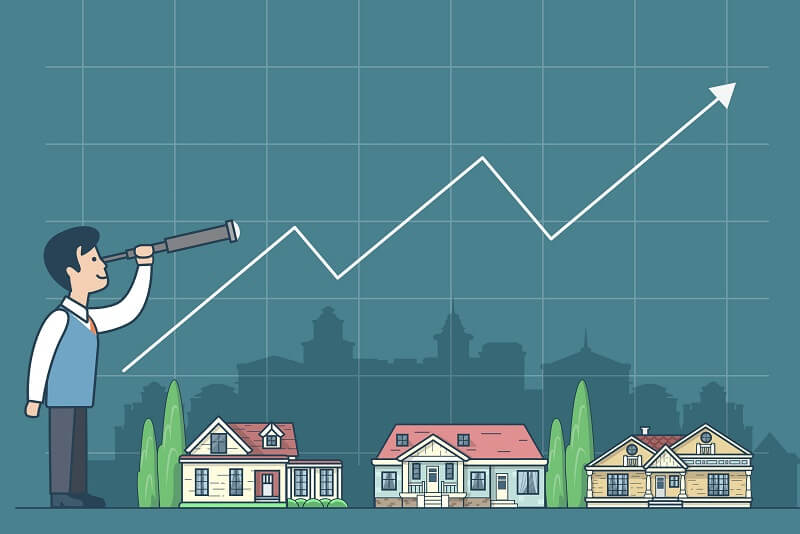
Even though the overall increase in value of a home depends on a lot of factors (which we will discuss in the latter part), installing solar panels or a solar energy system is one of them. We are not saying this; the US Department of Renewable Energy is. As mentioned earlier, for every $1 saved annually by solar panels, your home value increases by $20.
There is another report by the Financial Times that states that for 67% of homebuyers who age between 18 and 34, their soon-to-be home must be eco-friendly. In fact, there is an ongoing discussion on the new legislation, which would require owners to maintain an EPC rating of at least C by 2035.
Moreover, there is another report by Zillow on consumer changing trends in buying homes, according to which homes equipped with solar energy systems are 4.1% more likely to be sold than those that are not, which by my calculation is roughly $9,274 for a median-range home. Surely, the number can vary with the location. For instance, the same home area in California would be valued at 2.7% more, which is $9926, whereas in New York it would be valued at around 5.4%, which is $23,989.
Currently, the demand for homes with solar energy systems has increased for obvious reasons, and if that demand keeps on increasing, which it will, who knows where the “market value number” will land?
Factors Influencing Solar’s Added Value
As we are saying this from the start, solar panels are an added value to your homes when you are living and also when you are selling from the real estate perspective. However, there are additionally a couple of factors that can influence your solar energy system investment in the long run. Let’s have a deeper look at them.
Location
It is no secret that the market value of a home with a pre-installed solar system greatly varies with the geographic location. And the reason is very simple. Not every state governs or has the same energy protocols and provides the same incentives for saving on bills; plus the exposure to sunlight.
Additionally, if you are living in an area that embraces sustainable practices, it automatically uplifts the perceived market value of your environmentally safe home. Moreover, it increases the chances of having local solar panel support in case you want to install additional panels on your rooftop or face any issues with the pre-installed system in the future. All these factors play a significant role in determining the merit of solar-equipped homes at a particular location.
According to the insight report of the Solar Energy Industries Association (SEIA) of 2022, there are some states in America that motivate energy savings and energy conversions, and here are they in the state-wise ranking:
California, Texas, Florida, North Carolina, Arizona, Nevada, Georgia, New Jersey, Virginia, and New York
So, if you are living in one of these states, there are pretty good chances that you will get a good resale value for your home.
Local Electricity Rates
One of the major reasons why people are switching to greener practices is because they are environmentally friendly and help you cut down on the hefty bills in times of higher electricity rates during a specific interval or become a saviour during power outages.
However, they are more impactful in regions where the local electricity bills are usually high and can lower your monthly utility bills.
For instance, according to the U.S. Energy Information Administration (EIA), the average price of electricity to ultimate customers by end-use sector (in cents per kilowatt hour) ranges from 31 in New England to 19 in the Middle Atlantic to 16.42 in the East North Central, 12 in the West North Central, and 14 in the South Atlantic to 13 in East and West South Central to 19 in Pacific Contiguous to 34 in Pacific Noncontiguous.
So, if your monthly electricity bill is lower than this, you may not save money with a solar panel system. So, this is again one of the criteria that must not be overlooked.
Solar Panel Ownership
Solar panel ownership is another key aspect that highly influences the added value of solar panels to your home. When bought directly, there would be no hassle in transferring ownership of solar panels from seller to buyer.
However, if there is a case of leasing, then both parties need to contact the solar panel company about the ownership rights of the solar panels. Generally, in such scenarios, the buyer holds all the potential rights. However, in the future, if the owner wants to sell the home, it is mandatory to keep the ownership rights issues in check in advance just to avoid any confusion or any legal issues that might arise later on.
For instance, the buyer can start a new lease under their sign, where the seller has to pay the remaining amount of their solar lease in one go, which surely is a hefty amount and can be troublesome for them.
Another cost-effective strategy would be simply transferring the lease to the buyer’s name. In this case, the seller won’t need to pay all the money; however, in order to make this thing work, the buyer also must meet the criteria; for example, their credit history must be in check.
Condition of solar system
The next thing to consider is the age of your solar panel system. Generally, the solar panels work efficiently for 25 to 35 years. This means homes with new solar panels installed will have more validity for their future usage and are more likely to be pricey than homes with a 15- or 20-year-old solar energy system.
However, with regular maintenance, this lifespan can increase to 40 years. This includes promptly cleaning the solar panels, checking for any issues that often arise, and keeping a tab on their performance. Doing this will improve their overall performance, longevity, and resale value.
On the other hand, inefficient or outdated or expired solar panels can make a huge difference in reducing energy bills (negatively) and also increase the repair cost (with a warranty that has expired) since the time of their first installation.
Thus, it is utmost important that you keep your solar panels in check if you truly want them to be a valuable asset to your home. Maintain them in good working condition with all the safety measures checked (to avoid any future electrical hazards) so that you can harness the maximum energy benefits.
Moreover, this would not only attract future prospects, but it would also aid you in increasing your property’s market value with higher offers.
Does this mean: bigger solar panel installations mean higher home values?
We have already cleared the “Do solar panels increase home value?” confusion. Now, coming to the next question, “Is there any corelevance between number of solar panels and the property worth?”
Well, there is no robust study yet that states the direct correlation between the size of the solar panel installed and the enhanced value of your property. More power does not imply more savings. Sometimes, your home does not require that much energy consumption.
So, summarising in one line, only the right amount of energy that meets your needs and budget will create a domino effect for your home.
How do solar panels impact property taxes?
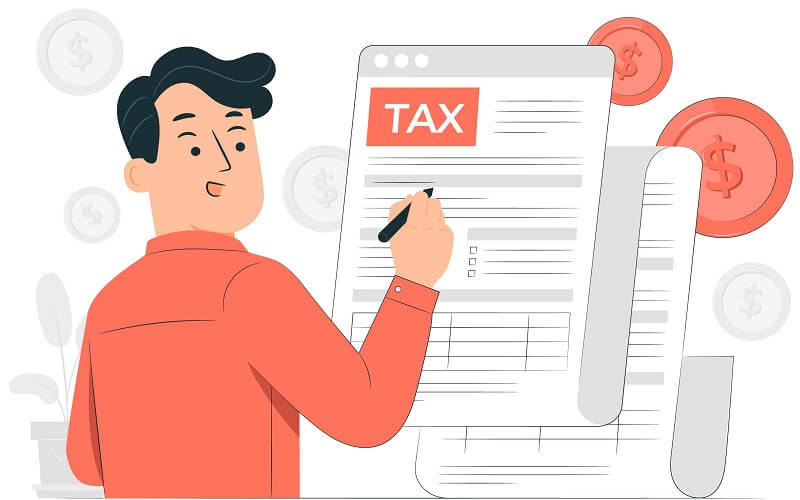
While contemplating installing a solar panel system in your home, one of the crucial things to consider is how it will impact your property taxes. As this solar power system is considered to increase your net property value, tax assessors use it later to calculate the property’s value for taxation purposes. Thus, it is important to know the state regulations on solar panel exemptions, incentives, or any assessment exercises that can significantly offset the increased property tax.
Also, these policies vary with jurisdiction and location, so it is wise for home-owners to “always, always” go through the local tax laws and understand them or consult with a professional local tax advisor that can guide you through the local property tax guidelines and their significant influence on installing solar panels.
How to maximize your solar panel investment?
We understand that installing solar panels initially demands a considerable investment. So, yes, it’s an obvious thing if this thought crosses your mind: “How can you maximise your solar panel investment”.
Don’t worry, this initial tag can surely seem a bit daunting to you, but in the bigger picture, it comes with a noticeable yield and aids your bank account in growing in the long run. So, here is how you can make the most of them:
- Exemptions on credits: Before you shop around for solar panel installation quotes, it is advisable to know all the related exemptions that you can obtain on credits. For instance, homeowners who are going to install panels during 2022–2032 can take advantage of the solar tax credit, saving them nearly 30% of the total installation cost.
- Solar incentives and rebates: As stated earlier, different state energy authorities provide different incentives or upfront rebates on solar panel installation that can help you offset the cost of the installation of a solar power system.
- Net metering: Net energy metering (NEM) lets solar panel owners return the extra saved energy in their solar system back to the electric grid, which helps them earn more per unit they send back. And at the same time, it provides support to the government by reducing strain on the grid.
Something home sellers don’t know!
Apart from the above, there are a few things that sellers are not aware of yet that are noteworthy and can remarkably impact their home deals.
- One, homeowners who have installed the solar panels on the rooftop are in the strongest position and can smoothly close the deal if they solely own the system.
- Second, there is a potential difference between leased and outright solar systems. They might face consequential issues in future home sale deals if they have leased over the system for a specific period of time.
Our Conclusion
With advantages like long-term savings on power bills, exemptions or rebates on solar panel installation, and generating more income via net metering, home owners can surely get more by investing in solar panels that can also overall increase the market value of their home.
So, regardless of whether you want to make your home a valuable asset for yourself or for future prospective buyers, financing every single penny in solar panels is worth investing in.
However, keep in mind that the overall impact of a solar power system on your property value is the domino effect of all these factors, including location, condition of the solar panel system, local state policies, neighbourhood, and your own needs.Now that you are very well aware of the “Do solar panels increase home value” concept, you can now make an informed decision when it comes to the return on investment of solar panel installation on your property.
Also, if you can’t afford to install the solar panel on your home, there are many solar financing options available and even state and federal govts are also giving rebate in taxes. So you can take advantage of that as well.
